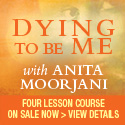by Kelly Wickham
“Don’t step directly over the graves, mom,” my youngest warned me.
“It’s earth. It’s ok. We’re not here to disturb,” I called over my shoulder.
It’s Fall and I like taking pictures. Sometimes, Morgan comes with me and then I spot a graveyard. I am calm with him, calmer than I was when he was younger. When all the children were younger. I am much relieved to have come into my 40s as a different mother than I began. The older children dislike it and chastise me when I brush off the sticking-his-heels-in-the-ground behavior of Morgan. They like to remind me that I would have yelled at them and fought to win the battle.
Sometimes, they forgive me the metamorphosis.
************************************
This year and the idea of manifestos started out just like I wanted and then the summer happened and I still can’t really talk about what happened except that by the end of it my nephew was gone. My manifesto mojo went out the window and survival became the only thing I knew. In the thick of it I gave a speech to women, my friends many of them, whom I was proud to spur on and tell the world what is unacceptable to them. Immediately following that, I came home and had to practice my preachings. One month later, my nephew was gone. Manifestos weren’t all that important in that space.
Or were they?
Manifestos are supposed to be what make my life work. They are part of the belief system that keeps me going. I couldn’t blaspheme the very experiences that helped me get there by quitting so I am planning on finishing out 2013 with them even while doing battle with the world. After all, it’s the wounds from the battle that remind me of the experiences so betraying that seems ill-conceived.
Self-preservation is a tricky, tricky thing. Somewhere in it lies the ability to shape shift as you pick off the menu. I have learned to choose wisely.
************************************
It is impractical to think that walking through graveyards is calming, but I do it because of the silence and the wonderment of lives past. I do it to remember that I’m alive and that it’s practical to consider the lilies of the field even if it is a bit optimistic and carefree. “It’s impractical”, says my therapist, “to engage in crazy-making behavior and not see it as crazy.”
Last summer I decided to go back to my therapist because I could feel things slipping through my hands and instead of trying to hold them I decided to free them. It wasn’t a conscious I am taking a stand decision but a THERE IT GOES decision and an I CAN’T CONTROL ANYTHING decision. Trish (I really like the first name of our intimate conversations) gives me an ACE test and tells me I haven’t dealt with trauma. That never occurred to me because foreward movement, go go go, just survive is how that’s been working for me. “And, how’s that working for you?” she asks. “It’s not,” I tell her. “That’s why I’m here.”
She lets me ask questions.
“Why do people think they can say anything to you when someone dies? They say the stupidest things. Everything I hear is stupid.” I am reveling in the fact that I can ask her blunt questions that are almost childlike in nature.
“You don’t have to take all their advice, Kelly. Take what you like and leave the rest. No one told you to be responsible for it.”

Letting it slip occurred to me while sleeping in an ICU with my sisters and learning more than I ever wanted to learn about how to survive in an ICU. I could write a manual. It would go something like this:
Things You Learn to Do in the ICU
1. Bring earplugs with you because it’s noisy and sometimes you need to sleep.
2. Wear a thick, cotton headband at all times. You can pull it over your eyes to sleep.
3. You learn how to be a zombie but without going around gnawing the flesh off of other people.
4. Avoid eye contact when you don’t feel like doing the niceties and you can affect a look on your face that is read thusly, Go ahead, ask me about my loved one.
5. You say Loved One instead of “family member” or “brother” or “son”. Across the tables and trays and clatter of the Real World you will look into the sunken eyes of a stranger, offer a smile and ask, “How is your Loved One today?” It will remind you again that you love this person who is sick. Importantly, it will remind you of love.
6. You learn to choose your words carefully and pick verbs that aren’t past tense.
7. Hold people’s hands. You learn to hold them without caring about clamminess or sweaty palms.
8. Remind everyone to eat and rest and stay hydrated. You will fail to do it yourself. The nurses will tell you this over and over. “It’s like when you’re on an airplane, you know? And they tell you to put the oxygen mask on yourself first and then put it on children. It’s your job to take care of you and our job to take care of your Loved One.”
9. You learn when to text back, when to pick up the phone, and when to hit “ignore”. You begin to have an “ignore” button that’s internal. Nothing seems important anymore. Things that were incredibly important and pressing yesterday hold no sway.
10. The practicalities of washing up well enough in the hospital bathroom to feel like you’ve taken a shower.
Graveyards and lilies and crazy-making behaviors matter not in this survival.
************************************
How can you make a manifesto out of losing a child? I have no idea and no words for my sister. She’s 43. He was 25. When the kids were here for dinner last Sunday we talked of Christmas plans and I flipped the calendar over to December to be smacked by the fact that I had put Kyle’s bday on the 7th because I fill it out every January for the whole year. Because that’s what you do, right? You know the dates but seeing them is something I like. It makes me un-crazy when the busyness of life tramples over me. Whatever Mallory asked me moments before were gone and, briefly, I lost all the air in my lungs.
“Mom? Mom, did you hear me?”
“Kyle’s birthday. I already wrote it. Damnit all to hell.”
************************************
There are no practicalities of death save for the allness of it and the nothingness you can do about it. Grief works like a circle, coming back to for regular reminders whereby you cannot hit an “ignore” button.
The life practicalities, however, are an annoying, trudging-forward movement. Is it practical that every morning begins when I see his picture on my dresser and say, aloud, “Hey, Kyle. How are you today?” It’s not crazy, that’s for sure. It’s practical and quiet and, if it doesn’t disturb anyone, then I’ll do it. It’s how I do battle with the world right now. This is on the menu, too, and if I don’t want something offered, I don’t take it.
 Kelly Wickham is a writer, educator, and speaker who’s writing has been featured on Yahoo! and the Huffington Post. She’s been a guest on NPR, speaks at blogging and education conferences, and pensMocha Momma and Babble’s Mocha Momma Has Something to Say. Kelly also is the Social Media Director for Little Pickle Press and has a thing for writing manifestos that rally the crowd to rally themselves. Connect with Kelly at her About.me page, and on and . This post originally appeared on her blog and was reprinted with permission.
Kelly Wickham is a writer, educator, and speaker who’s writing has been featured on Yahoo! and the Huffington Post. She’s been a guest on NPR, speaks at blogging and education conferences, and pensMocha Momma and Babble’s Mocha Momma Has Something to Say. Kelly also is the Social Media Director for Little Pickle Press and has a thing for writing manifestos that rally the crowd to rally themselves. Connect with Kelly at her About.me page, and on and . This post originally appeared on her blog and was reprinted with permission.













Recent Comments